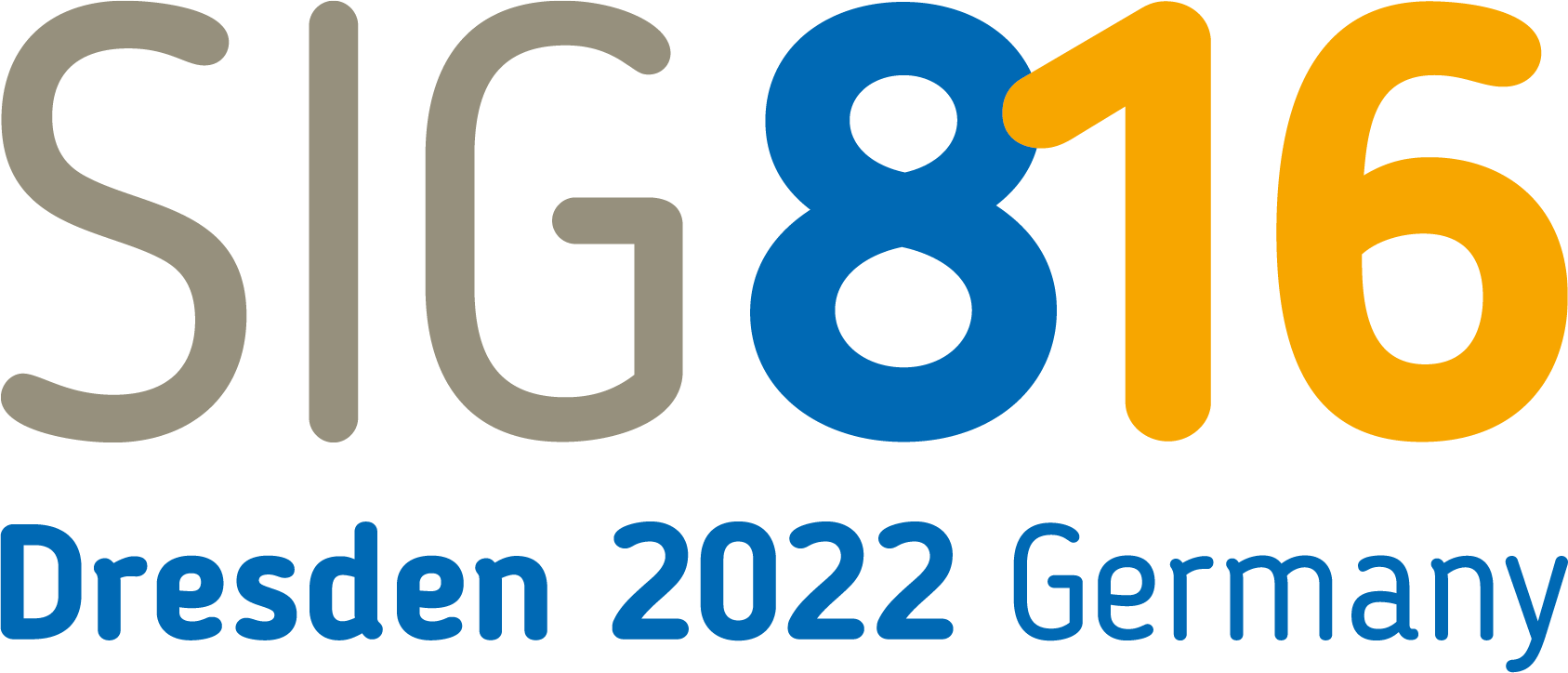Invited Speakers
We are pleased to announce that the following invited speakers have
confirmed their participation in the conference.
Keynotes
-
Skill, Will, and Thrill: The Complex Interplay of Cognition, Metacognition, Motivation, and Emotion in Learning and Development
- Patricia A. Alexander (University of Maryland, USA) Volition and self-control: From executive functions to meta-control
- Thomas Goschke (Technical University of Dresden, Germany) There Is No Denying It: Motivation and Emotion Play Key Roles in Public Understanding of Science
- Gale Sinatra (University of Southern California, USA) Nourishing Learners’ and Teachers’ Engagement and Growth? The Critical Role of Basic Psychological Needs and Need-supportive Socialization
- Maarten Vansteenkiste (University of Ghent, Belgium)
-
Balancing Doing Well with Feeling Well: Dynamics between Student Motivation and Well-being
- Heta Tuominen (University of Helsinki, Finland) Promoting Student Motivation: But How and for Whom?
- Barbara Flunger (University of Utrecht, The Netherlands)
- Patricia A. Alexander (University of Maryland, USA)
- Thomas Goschke (Technische Universität Dresden, Germany)
- Gale Sinatra (University of Southern California, USA)
- Maarten Vansteenkiste (Universiteit Gent, Belgium)
Mid-Career-Symposia
- Heta Tuominen (University of Helsinki, Finland)
- Barbara Flunger (Universiteit Utrecht, The Netherlands)
Invited Symposia
Development of Motivation and Metacognition
- Eleftheria Gonida (Aristotle University of Thessaloniki, Greece)
- Claudia Roebers (Universität Bern, Switzerland)
Metamotivation – Metareasoning – Effort Regulation
- Yves Karlen (FHNW, Switzerland)
- Veronika Job (University of Vienna, Austria)
Motivation & Emotion & Metacognition in Technology-enhanced Self-regulated Learning
- Roger Azevedo (University of Central Florida, USA)
- Kristina Stockinger (Augsburg University, Germany)
- Reinhard Pekrun (LMU München, Germany)
- Michelle Taub (University of Central Florida, USA)
Teacher Motivation – Metacognition
- Ruth Butler (Hebrew University of Jerusalem, Israel)
- Bracha Kramarski (Bar Ilan University, Israel)
- Fani Lauermann (Technische Universität Dortmund, Germany)
Self-Evaluations of Learning and Competencies
- Marion Händel (Augsburg University, Germany)
- Manuela Paechter (Karl-Franzens-Universität Graz, Austria)
Oxford Style Debate
Working title „How to investigate Motivation, Emotion and Metacognition in Instructional Contexts?”
- Thomas Goschke (Technische Universität Dresden, Germany)
- Kirsti Lonka (University of Helsinki, Finland)
- Peter Reimann (University of Sydney, Australia)
- Tim Urdan (Santa Clara University, USA)
- Phil Winne (Simon Fraser University, Canada)


Prof. Dr. Patricia Alexander
Professor
Department of Human Development and Quantitative Methodology, University of Maryland, USA
Dr. Patricia Alexander is a Distinguished University Professor, the Jean Mullan Professor of Literacy, and Distinguished Scholar-Teacher in the Department of Human Development and Quantitative Methodology at the University of Maryland where she heads the Disciplined Reading and Learning Research Laboratory. She has served as President of Division 15 (Educational Psychology) of the American Psychological Association, Vice-President of Division C (Learning and Instruction) of the American Educational Research Association, and Past-President of the Southwest Educational Research Association. A former middle-school teacher, Dr. Alexander received her reading specialist degree from James Madison University (1979) and her PhD in reading from the University of Maryland (1981). Since receiving her PhD, Dr. Alexander has published over 330 articles, books, chapters, and monographs in the area of learning and instruction. She has also presented over 450 papers or invited addresses at national and international conferences. She served as the senior editor of Contemporary Educational Psychology for over 20 years, was past editor of Instructional Science and Associate Editor of American Educational Research Journal-Teaching, Learning, and Human Development, and presently serves on 12 editorial boards including those for Learning and Instruction, Educational Psychologist, Review of Educational Research, and the Journal of Educational Psychology.
Dr. Alexander is a member of the National Academy of Education, and a Fellow of the American Psychological Association, the American Educational Research Association, and the Society for Text and Discourse. Named one of the five most influential and productive educational psychologists over the two decades, her honors include the Oscar S. Causey Award for outstanding contributions to literacy research from the Literacy Research Association (2001), the E. L. Thorndike Award for Career Achievement in Educational Psychology from APA Division 15 (2006), and the Sylvia Scribner Career Award from AERA Division C (2007). In addition, she has received various national, university, and college awards for teaching and mentoring.
Skill, Will, and Thrill: The Complex Interplay of Cognition, Metacognition, Motivation, and Emotion in Learning and Development
It is a truism to proclaim that learning is an immensely complex process and that the path to becoming a competent learner in any field can be perilous and uncertain. Still, for more than 40 years, I have made it my mission to investigate the nature of academic learning and to map out a path toward increasing competence. In this presentation, I will chronicle some of that exploration and several course adjustments that occurred due to shifting theoretical and methodological currents in educational and psychological science, as well as to personal theoretical and methodological re-orientations. Those re-orientations involved mounting evidence that the attainment of competence cannot be attributed solely to cognition (skill), metacognition (will), motivation or emotion (thrill). Rather, it is the continual interplay of these components within learning environments and societal contexts that either fosters students’ academic development or frustrates it. With this path to competence mapped out, I will offer guidance on embedding skill, will, and thrill in learning environments to promote students’ academic development.

Prof. DR. THOMAS GOSCHKE
Professor of General Psychology, Technische Universität Dresden, Germany
Thomas Goschke is Professor of General Psychology in the Faculty of Psychology of the Technische Universität Dresden. From 2014-2018 he served as Head of the Department of Psychology and from 2014-2022 was Dean of the Faculty of Psychology. He is spokesperson of the Collaborative Research Center (SFB 940) “Volition and Cognitive Control”, which was established in 2012 by the German Research Foundation. In the center, more than seventy scientists from experimental, biological, and social psychology, cognitive, affective and developmental neuroscience, clinical psychology and psychiatry, and computational modeling join forces to elucidate mechanisms and modulators of volitional action and self-control at behavioral and neural levels of analyses, and investigate dysfunctions of cognitive control in selected mental disorders. Dr. Goschke published more than 170 journal articles and book chapters in the area of volition, cognitive control, and self-control. The overarching aim of his research is to eludicate cognitive and neural mechanisms that underlie the human capacity to anticipate future action outcomes, to adapt behavioral dispositions flexibly to changing goals and task demands, and to override impulsive or habitual responses in order to render behavior congruent with long-term goals. To this end, his group combines behavioral tasks, neuroimaging methods, and ecological momentary assessments of self-control in real-life contexts.
Volition and self-control: From executive functions to meta-control
Human action rests on remarkable cognitive control capacities, including the ability to adapt behavior flexibly to changing contexts and to override impulsive or habitual responses in favor of long-term goals. Impairments of these control and self-regulation capacities have been related to harmful behaviors like insufficient academic effort, unhealthy eating habits and addictive behaviors. In the past decades, impressive progress has been made in elucidating the cognitive, computational, and neural mechanisms underlying volition and self-control. Questionable concepts that conceived of self-control as a limited resource or postulated a homunculus-like ‘central executive’ have been replaced by models specifying how volitional control emerges from interactions between distributed brain networks, how these networks are adapted to changing goals, and how they are modulated by emotion and motivation. I give an exemplary overview of this research with a focus on three key themes. First, based on a neurocognitive process model of self-control, I present evidence from a multilevel study that combines behavioral and neuroimaging tasks with ecological momentary assessments and showed that individual differences in real-life self-control failures are predicted by dysfunctional interactions between performance-monitoring, cognitive control, and valuation networks. Specifically, results indicate that self-control failures do not always reflect impaired control competencies, but insufficient mobilization of control due to deficient monitoring. Secondly, I will present new results that challenge the view that cognitive control is always experienced as costly, but suggest that people can learn to assign intrinsic value to cognitive effort. Finally, I discuss this research within a more general theoretical framework, according to which goal-directed action in changing environments confronts agents with fundamental “control dilemmas”, which require a context-sensitive balancing of antagonistic adaptive constraints (cognitive stability vs. flexibility; goal persistence vs. disengagement; exploitation vs. exploration). Elucidating the meta-control processes underlying the adaptive regulation of such control dilemmas is a key challenge for the next decade of cognitive control research.

Prof. Dr. Gale M. Sinatra
Professor and Associate Dean for Research
Stephen H. Crocker Chair of Education and Psychology,
Rossier School of Education,
University of Southern California, USA
Gale M. Sinatra is the Stephen H. Crocker Chair and Professor of Education and Psychology at the Rossier School of Education at the University of Southern California where she serves as the Associate Dean for Research. She received her B.S., M.S., and Ph.D. in Psychology from the University of Massachusetts, Amherst. She heads the Motivated Change Research Lab http://www.motivatedchangelab.com/, the mission of which is understanding the cognitive, motivational, and emotional processes that lead to attitude change, conceptual change, STEM learning, and public understanding of science. Sinatra’s model of conceptual change learning (Dole & Sinatra, 1998; Sinatra, 2005; Sinatra, 2022) describes how motivational factors contribute to the likelihood that individuals will change their thinking about a scientific topic. She is a Fellow of AERA and APA and a member of the National Academy of Education. She is the co-author (with Barbara Hofer) of Science Denial: Why It Happens and What to Do About It https://www.sciencedenialbook.com/.
There Is No Denying It: Motivation and Emotion Play Key Roles in Public Understanding of Science
Many individuals are perplexed by family members, friends, and co-workers who avoid vaccinations or believe climate change is a hoax. Science doubt, resistance, and denial are in the news daily, whether reporting on the fear of adverse effects from vaccines or erroneous beliefs that climate change is naturally caused. What’s commonly misunderstood is that it is “other people” who have this problem, when in fact we are all susceptible to misinformation and resisting aspects of science. Democracies depend on educated citizens who can make informed decisions about scientific issues. The COVID-19 pandemic brought these issues into sharp relief. In Science Denial: Why It Happens and What to Do About It, Sinatra and co-author Barbara Hofer examine the motivational and emotional factors contributing to science doubt, resistance, and denial. This presentation will focus on the themes from the book including the role of psychological constructs such as cognitive biases, emotions, identity, epistemic cognition, and motivated reasoning in public (mis)understanding of science. Sinatra will overview significant motivational and emotional challenges to public understanding of science and provide research-based solutions to each challenge for individuals, educators, policy makers, science communicators.

Prof. Dr. Maarten Vansteenkiste
Professor
Department of Developmental, Personality, and Social Psychology,
Ghent University, Belgium
Maarten Vansteenkiste is since 2014 a full professor in the Department of Developmental, Personality, and Social Psychology. Since his research internship at the University of Rochester, collaborating with Prof. Dr. Ryan and Prof. Deci, the founding fathers of Self-Determination Theory (SDT), he has substantially contributed to the extension, refinement, application and dissemination of this framework, both in collaboration with these founding fathers (Vansteenkiste & Ryan, 2013; Vansteenkiste, Ryan, & Soenens, 2020), but also largely independently from them, thereby establishing his own line of scientific work. His work addresses novel topics in the motivational literature, such as the study of motivational profiles, individuals‘ multiple reasons for lacking motivation, the interface between psychological and physiological needs, and the development of a more fine-grained and holistic understanding of how different (de)motivating practices of socializing agents (e.g., teachers, parents) relate to each other. Further, his work is not limited to the development of SDT as such but extends to the motivation literature more broadly as he has written theoretical reviews and book chapters that plea for a cross-fertilization between SDT and motivational interviewing, achievement goal theory, and expectancy-value theory. His work has had a strong scientific impact as it is highly cited (h-index = 77 in web of science and 120 on google scholar), with diverse publications being mentioned as highly cited and dozens of A1-manuscripts being published in high impact journals in diverse fields of psychology. He has been listed as a highly cited researcher in 2019, 2020 and 2021.
In terms of its societal impact, his work has had a strong influence on the domains of education, sports, and parenting. Particularly impactful was the publication of a Dutch handbook entitled ‘Vitamins for growth’ (Vansteenkiste & Soenens, 2015), followed by the publication of a practice-friendly book ‘Motivating coaching in the sport’ (Aelterman et al., 2017). He played a critical role during the coronacrisis as a member of the key scientific advisory committee (GEMS) to aid policy makers in developing an evidence-based policy. To this end, he led a consortium of scholars who tracked diverse aspects of individuals’ psychological functioning (motivation, well-being, vaccination) across 2,5 years during the pandemic. The Motivation Barometer Project (www.motivationbarometer.com) provided an unique insight in the psychological impact of the crisis and received substantial attention in the media, with more than 40 reports being published on a regular basis.
Nourishing Learners’ and Teachers’ Engagement and Growth?
The Critical Role of Basic Psychological Needs and Need-supportive Socialization
At the heart of Self-Determination Theory is the claim that all people have basic psychological needs for autonomy, competence, and relatedness, the satisfaction of which is beneficial for learners’ psychological growth and the frustration of which increases risk for ill-being and maladjustment. In the present presentation, the key criteria to characterize basic needs are addressed, together with supportive diary, longitudinal, and experimental research in diverse age groups, some of which was collected as part of a large-scale population study across the pandemic (www.motivationbarometer.com). Although basic needs are presumed to play a universal critical role across different developmental phases and challenges, there is room for contextual variation in the support of basic needs by key socialization figures (i.e., teachers, parents). Indeed, there is not a one-size-fits-all approach to support learners’ psychological needs. Recent work grounded in a circumplex-based approach on need-supportive and need-thwarting contextual conditions, thereby providing a deeper insight in the dynamic interplay between autonomy support (relative to control) and structure (relative to chaos), shows that different (but not all) roads can lead to Rome. Accordingly, the provision of adequate need support becomes a matter of calibration and of tailoring support to individual differences between students and situational demands. Finally, apart from contextual support of basic needs, individuals can also get their basic needs met through need crafting. This promising line of correlational and intervention research on need crafting testifies to the pro-active and growth-oriented nature of the human organism.

Dr. Heta Tuominen
University lecturer
Faculty of Educational Sciences, Department of Education,
University of Helsinki, Finland
Heta Tuominen’s work links the study of motivation with well-being and explores both among children and young people. Specifically, she investigates individual differences in and developmental trajectories of achievement motivation and their associations with various educational and emotional outcomes. After completing her PhD in 2012 at the University of Helsinki, she continued as a post-doctoral researcher and as a PI of a project funded by the Academy of Finland. In 2018, she started as a university lecturer at the Department of Education, University of Helsinki but, during 2019–2021, she worked as a collegium researcher at the Turku Institute for Advanced Studies. Heta Tuominen is a Docent of Education, espe¬cially research on student motivation and well-being, and she coor-dinates research networks around these themes (e.g., the Educational Psychology and Learning Research Special Interest Group and the Motivation, Learning, and Well-Being research collective).
Balancing Doing Well with Feeling Well:
Dynamics between Student Motivation and Well-being
Recent evidence indicates that there is a worrying increase in academic pressure and burnout among students and that perfectionism has increased among youth. Therefore, a need to study young people’s motivation, perfectionistic tendencies, and well-being appears pressing. Despite the increasing prevalence of study-related burnout, significant individual differences in these developments take place. A possible key to the patterning of these differences lies not only in the level of goals the students seek to attain, but also in the type of goals striven for. Achievement goal orientations and perfectionism are two instrumental frameworks for understanding how students set goals, how they meet their imposed demands, and how they interpret achievement situations. In a series of studies, we have explored students’ simultaneously salient multiple goals and demonstrated that they contribute to student well-being. For example, when a student aims to excel and outperform others, this sort of performance mode might result in not only academic success but also vulnerability for experiencing pressure, psychological cost, and exhaustion. Furthermore, we have examined students’ perfectionistic profiles and how they predict well-being. Especially students with profiles characterized by high concerns (concerned and perfectionists) are at risk of study-related burnout. Our findings have also indicated that university students’ perfectionistic profiles are linked with their stress experiences, coping, and recovery during the COVID-19 pandemic. Particularly a combination of high strivings and concerns seems to threaten university students’ well-being. The findings add to our understanding of how both, the level and quality of goals, contribute to well-being.

Dr. Barbara Flunger
Assistant Professor
Faculty of Social and Behavioural Sciences,
Department of Education and Pedagogy,
Utrecht University, Nederland
Barbara Flunger studies how student motivation can be improved. To this end, she is interested in understanding the educational and psychological factors that facilitate motivation, learning behavior and achievement of heterogenous students, using advanced variable- and person-centered research methods.
Barbara Flunger studied education, psychology, and child-and youth psychiatry at the Ludwig-Maximilians-University in Munich, where she graduated in 2007. She completed her PhD dissertation titled „Importance of explicit need strength for the learning process“ in 2012. Subsequently, she was a post-doctoral researcher at the Hector Research Institute of Education Sciences and Psychology at the University of Tübingen. Since 2015, she has been working as an assistant professor of education at Utrecht University.
Promoting Student Motivation: But How and for Whom?
Students’ motivational problems can have substantial societal costs: From poor performance to drop-out (ranging from 20-46% in European countries). Therefore, it is essential to study how motivation can be improved. A body of research has confirmed that teachers’ autonomy support can boost students’ academic outcomes. Yet, if teachers use autonomy support in their classrooms, will all of their students become more motivated and engaged? In order to reveal differences between students, our research considers distinct educational and psychological factors that facilitate motivation, learning behavior and academic achievement of heterogenous groups of students. Our findings showed that students with distinct levels of motivation and engagement can benefit from motivational support. The few differential effects we revealed highlighted that relatively high initial motivation can function as a motivational resource and increase the benefits of autonomy support. Yet, our findings also suggest that students may observe differences in how teachers provide autonomy support within their classroom. When teachers adjust their autonomy support to individual students, students can perceive inequalities in the amount of support they receive compared to the overall class and specific classmates. Differences in teachers’ autonomy support in the classroom may not per se trigger negative outcomes in students: We found that students’ perception that other students received more support than they did is associated with students’ extrinsic motivation. Thus, teachers should be mindful to evenly distribute individual autonomy support within their classroom. Students might thrive most if they perceive their teachers to be autonomy-supportive in distinct situations, when teachers interact with the entire classroom and with individual students.
Development of Motivation and Metacognition
Gonida, E., Roebers, C., and Stipek Mudd, D.
In theoretical models of self-regulated learning, motivation and metacognition are conceptualized side-by-side, with both concepts being considered as interrelated components of self-regulated learning. However, research on the development of each construct has followed distinct theoretical and methodological lines ignoring their interrelations. The aim of this interdisciplinary symposium is to bring closer related yet distinct theory and evidence in the fields of metacognitive and motivational development and provide an integrated overview towards a better understanding of how motivation and metacognition develop and associate to each other over time. Both leading and promising young researchers will present state-of-the-art research attempting either to shed light on the link between motivation and metacognition across the life span or to present new research questions addressed with innovative methods that have the potential to guide future directions in bridging motivation and metacognition research. Specifically, evidence on the development of ‘knowing about knowing’, self-monitoring, implicit vs explicit metacognition and metacognitive strategy use will be approached autonomously but also in relation to the development of self-efficacy, future time perspective, perceived competence and interest over time. One expert in both fields will attempt to connect the above constructs by identifying their dynamic interplay in the course of development and why bringing closer these two lines of theory and research will substantially contribute to our better understanding of the development of the self-regulated learner as well as of the strategic and motivated human mind.
Meta-Motivation and Meta-Reasoning
Karlen, Y., Job, V., and Alexander, P. A.
What students know and believe about characteristics of their motivation and cognition plays an important role in successful learning, acquiring new competencies, and coping with setbacks and failure. In recent years, research on meta-motivational, meta-cognitive, and meta-self-regulatory beliefs and knowledge expanded in various directions. On the one hand, research on implicit theories expanded towards neglected topics such as the malleability of motivation and self-regulated learning (SRL) and the assessment of implicit theories. On the other hand, various interventions were developed to improve students’ self-monitoring and metacognitive judgments. The present talks illustrate some of these recent empirical and theoretical developments. They highlight the importance of meta-reasoning in educational contexts and point toward future directions in assessing and shaping students’ and teachers’ meta-motivation and meta-reasoning. Trautner and Schwinger propose that implicit theories of motivation affect self-efficacy and the use of motivation strategies. Karlen and colleagues present evidence examining the role of teachers‘ self-beliefs about SRL abilities for their motivation to foster SRL in the classroom. Sik and Job present a mouse-tracking propositional evaluation task to assess theories of intelligence on the implicit level. Enders and colleagues tested the effect of comprehension-based as compared to performance-based cues on students‘ metacognitive accuracy. Finally, Michalsky and Bakrish present evidence on the positive impact of an intervention prompting metacognitive self-questioning to increase the accuracy of judgments of learning. This symposium brings together diverse but complementary perspectives on the important topic of meta-motivation and meta-reasoning, suggesting new approaches to promote student and teacher motivation and learning-related self-regulation.
Emotional and Metacognitive Processes during Technology-Based Learning
There is increasing evidence that emotional and metacognitive processes play a key role in learning. Research has demonstrated that technology-based learning is effective for fostering emotional and metacognitive processes, which students typically struggle to deploy during learning. There are many approaches to examining these processes using different types of multimodal data. These data can be used to investigate human-machine interactions as well as human-human interactions during learning across contexts. This can include multimedia and game-based learning environments, independent and social learning, and secondary school as well as college students. The goal of this symposium is to discuss challenges in measuring the complex interplay between emotional and metacognitive processes during learning across these different contexts and populations. The symposium includes four contributions that discuss progress and challenges in current research in the field. The first presentation focuses on the methodological, analytical, and pedagogical challenges associated with using multimodal multichannel data to investigate learning with advanced learning technologies across domains and contexts. The second presentation addresses challenges in investigating socially-shared regulated learning using multimodal data during science learning in secondary school. The third presentation describes an integrated framework for assessing cognitive and affective processes during technology-based learning. The fourth presentation presents a study investigating the role of emotions when engaging in metacognitive monitoring activities during game-based learning in college students. Drs. Susanne Lajoie and Inge Molenaar, experts in the areas of emotion, metacognition and learning technologies, will critically analyze the work presented in this interactive symposium.
Do Teachers' Motivations, Emotions, and Self-Regulation Matter for Students' Educational Outcomes?
Teachers’ motivations, emotions, and self-regulation in professional settings can have profound implications for their professional decision-making, work engagement, and wellbeing. However, links between teachers’ affective-motivational and self-regulatory characteristics with their students’ educational outcomes remain elusive. Two key pathways of influence have been proposed: First, teachers’ affective-motivational and self-regulatory characteristics might lead teachers to engage in high-quality instructional practices that are likely to benefit students. Second, teachers’ motivations, emotions, and self-regulation might affect students via the mere contagion of positive affect (e.g., shared enthusiasm in the classroom) or role model effects. Unfortunately, comparatively few studies to date have systematically examined these pathways, and the available evidence is mixed, with some studies showing positive links with students’ educational outcomes, whereas others showing null or even negative associations (e.g., Lauermann, 2015; Lawson, et al., 2019; Zee & Koomen, 2016). To clarify these puzzling results, this invited symposium features the work of leading experts in the fields of teacher motivation, emotions, and self-regulation research, who focus on the interplay between teachers’ psychological characteristics, teaching practices, and students’ educational outcomes. The contributions draw on diverse theoretical perspectives (e.g., achievement-goal theory, expectancy-value theory, and self-regulated learning) and use complementary methodological designs (e.g., systematic reviews, longitudinal research, multi-level analyses, classroom observations, and interventions). An explicit goal of this symposium is to not only contribute to a better understanding of the interplay between teacher and student characteristics but also provide a platform for the exchange of ideas across the fields of teacher motivation, emotion, and self-regulation research.
Self-evaluations of Learning and Competences
Self-evaluations are considered in research on self-regulated learning and metacognition (monitoring strategies or judgments) as well as in motivational research. The current symposium encompasses eight contributions from both fields of research and focuses on different theoretical and methodological perspectives in diverse settings and age groups. Four studies focus on metacognitive strategies or judgment accuracy. First, an individual-differences approach explored the (in)accuracy of confidence judgments (Kleitman et al.). Second, a longitudinal study modelled the influence of metacognitive strategies on mathematics grades in higher education (Ringeisen). Use of predictive cues for judgment accuracy and their relation to regulation was studied in elementary students (van de Pol). Finally, an integrated approach studied the structure and relationship of monitoring strategies and monitoring judgments (Händel & Dresel). Four further contributions illuminated predictors and consequences of self-concept. Two looked closer into the impact of self-concept and motivation-related variables (goal orientations or emotions) on psychophysiological responses to stress-related tasks (Steinlechner et al.; Hackl-Wimmer et al.). Another contribution (Ertl) investigated, in a sample of the National Educational Panel study, how outcome expectations can be predicted by prior outcome expectations and motivation. The last contribution focused on the impact of gender stereotypes and motivation on the self-concept of women in STEM (Luttenberger). Thereby, the symposium encompasses a broad range of important research questions on the causes of more or less accurate self-evaluations, their impact on learning and behavior, as well as promising training procedures. The contributions are discussed by experts of metacognition (Winne) and motivation (Watson).




